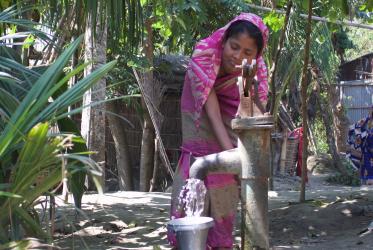Displaying 1 - 19 of 19
Unity is key when health crisis poses new challenges in Asia
28 February 2022
New WCC “Eco Ambassadors” pledge to protect our ecology
06 January 2020
Eco-School promotes blue communities, green churches
19 November 2019
WCC Eco-School begins in Thailand
07 November 2019
WCC represented at G20 Interfaith forum in Tokyo
13 June 2019
G7 must address famine
22 May 2017
Interfaith workshop calls for justice and compassion in finance
03 December 2015
Weaving together personal faith and climate change
23 September 2014






